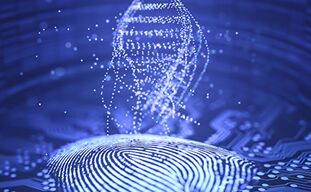那些藏在指纹里的秘密
|
Before the discovery of DNA profiling in the 1980s, fingerprints were the easiest way to solve serious crimes. It’s believed that of the 7 billion or so people on Earth, each one of us has our own unique fingerprints. But did you know that our fingerprints could actually reveal a lot more about us than just our identity?
According to Melanie Bailey of The Conversation, fingerprints can indicate lifestyle and environment, eating habits, possible medical problems and even the job of a person. So how can we figure all this out from just a simple fingerprint? Well, a fingerprint is formed when a finger makes contact with a surface. Most fingerprints are invisible to the naked eye and require a chemical development process in order to make them visible. Stuck between the ridges of a fingerprint, however, are substances that can tell a story about who we are. Things like traces of sweat, blood, and food reveal a lot of information about us – what we’ve touched, what we’ve eaten and even what drugs we’ve taken. At the moment, the technique used to detect these substances is mostly used in crime detection, but its application could be much wider, according to Bailey, who lectures in chemistry at the University of Surrey in the UK. For example, she and her fellow researchers were able to tell what medicines people were taking from their fingerprints, which may be of great help in the future to doctors treating their patients. A fingerprint check may also be able to tell a doctor whether a patient is properly absorbing a drug they’ve been prescribed. In the treatment of some of the most serious illnesses, it’s vital that the body is taking in these medicines. As Scientific American noted, this is particularly important for patients undergoing treatment for cardiac conditions and psychosis, as these people might struggle to absorb the drugs or forget or choose not to take them. And while it’s commonly believed that our fingerprints never change, in fact, they do – and the way they change can provide a lot of very useful information. In the future, fingerprint science won’t be restricted to the crime lab but could help doctors keep us in the best possible health. |









